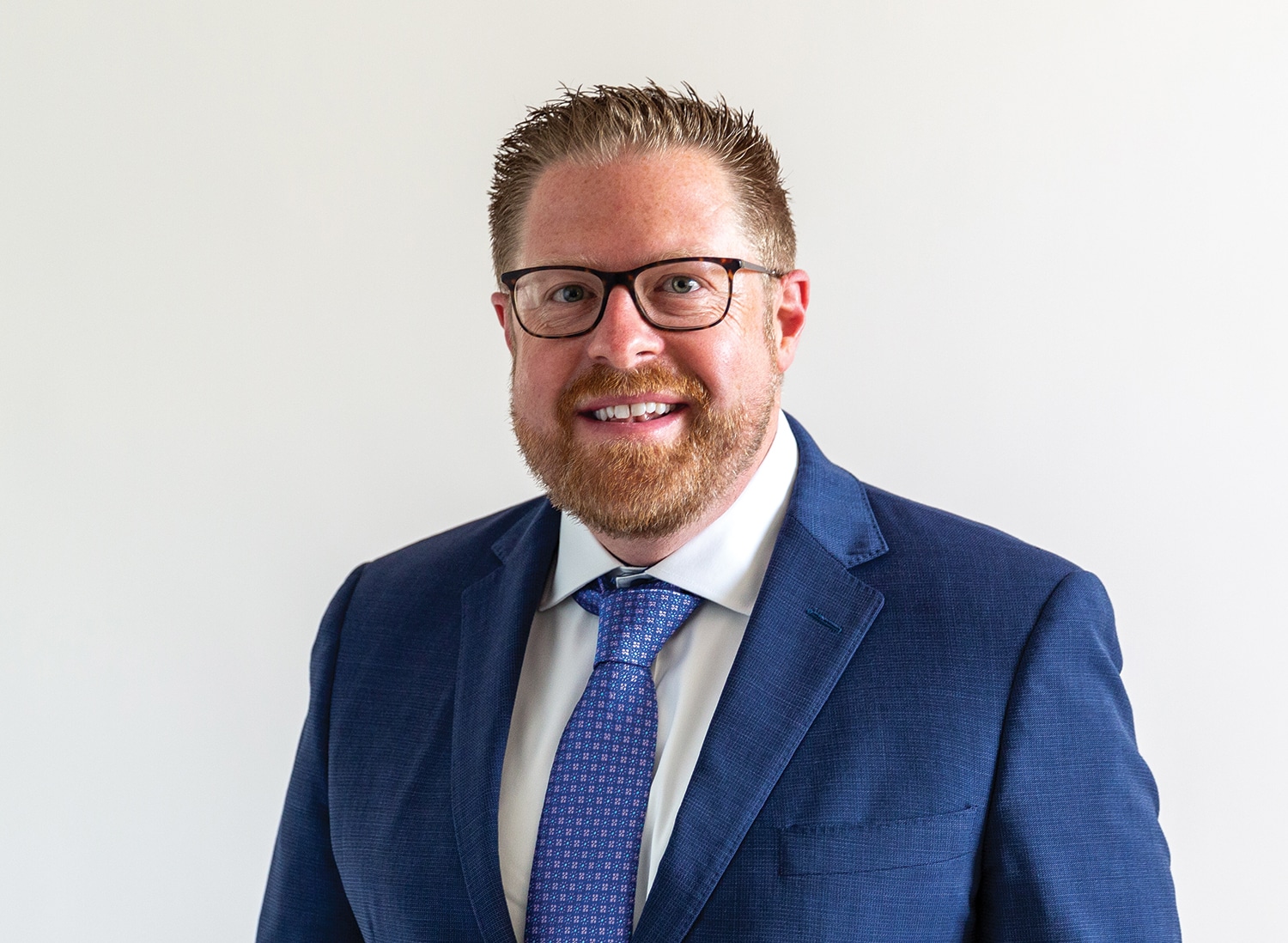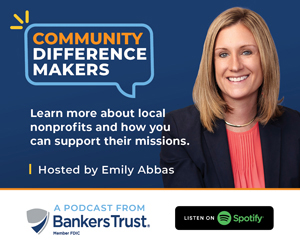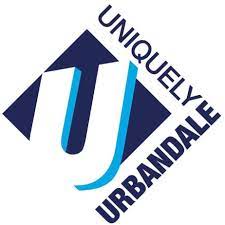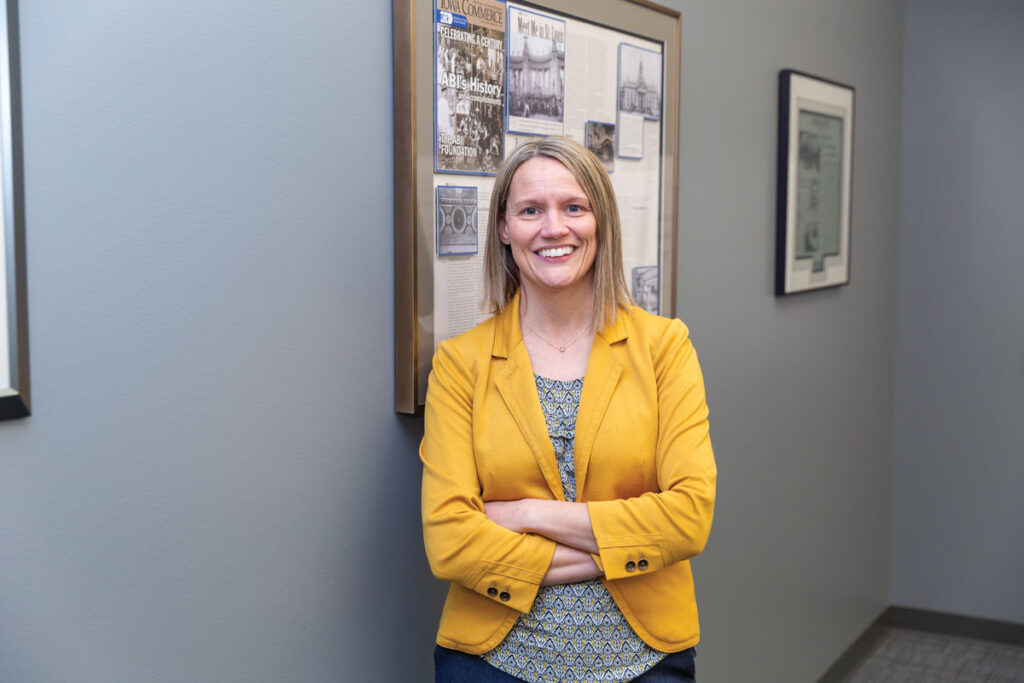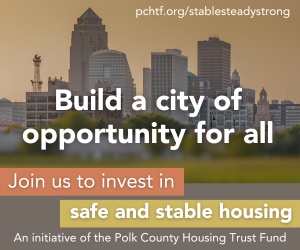A Closer Look: Ryan Moffatt
Community and economic development director, city of West Des Moines

When Ryan Moffatt was in high school, his guidance counselor asked him what he wanted to study in college.
He replied without hesitation: City planning.
“I just knew from an early age that I loved city planning,” said Moffatt, who in June was named West Des Moines’ community and economic development director. “As a kid, I played [the city-building video game] SimCity a lot. … Even though I’ve transitioned into economic development, city planning is still my roots.”
Moffatt’s passion for the vocation comes from his desire to help make communities better places for people to live, work and play, he said.
Moffatt was hired after Clyde Evans, the city’s previous community and economic development director, announced he was retiring. Evans worked for the city for 32 years. Moffatt and Evans worked together for about a month before Evans’ retirement.
Evans “was an institution in local economic development,” Moffatt said. “He really shaped how West Des Moines does its economic development policies. … I consider him one of my mentors in the field.”
Evans’ advice to Moffatt?
“As times change and economic conditions change, there is no one-size-fits- all approach to economic development,” Moffatt said. “His advice to me was ‘Do what you can to make it your own.’ Don’t feel like I have to always follow exactly in his footsteps. Branch out.’”
We recently caught up with Moffatt.
What is the difference between community planning and economic development?
With economic development, it is more about implementing something versus taking the longer-range approach to deciding where the streets and sewers and other improvements will go to support the community. The two really go hand in hand. That’s not to say there isn’t some [planning] that goes with economic development. But planning is probably more on the regulatory side. To me, economic development is one-third marketing, one-third outreach to the business community, and one-third project management and development work that is coming in.
You worked over 18 years for the city of Des Moines, where a lot of redevelopment and historical preservation occurred. A lot of development in West Des Moines is on farmland and previously undeveloped land. Talk about the differences between the two cities.
I think the biggest difference is that Des Moines is a whole lot of redevelopment work. Their goals really are to grow from the inside out and focus on redevelopment more. West Des Moines is a good mix of both. Certainly, there are some aging parts of the community that need redevelopment help. I think that’s where my expertise can assist quite a bit when it comes to helping with Valley West Mall long-term and making sure Valley Junction keeps moving. But yes, there is a lot more greenfield work on the fringes and a lot more mega projects, like the data center work.
What did you learn during your tenure in Des Moines that you’re taking to West Des Moines?
Making sure that we strive to have places where of all income ranges can live that are proximate to places of work. That was a big goal. Quite honestly, I’ve been surprised with the body of work that’s been done in West Des Moines that I wasn’t aware of before I came here. [West Des Moines] has a good story to tell when it comes to affordable housing. We want to continue that.
We did a lot of historic preservation work in Des Moines and that is something I think I can transfer over.
Des Moines is very diverse in terms of [its] real estate offerings. I was able to work on pretty much all real estate classes while I was there. … I think the breadth of experiences that I’ve had can transfer to a new community.
What are your top goals?
All eyes really do focus on the redevelopment of the Valley West Mall corridor. There is no easy button to push to fix that. It’s going to be a challenge; it’s going to take time. We are hopeful that we can work around the edges, but I don’t think we can change the trajectory of that area entirely until we take the bull by the horns, which is the mall property itself. … [The city has its] ideas of how we would like that to redevelop but the city doesn’t control the property. We want to stay engaged with the ownership – the bank that got it in receivership – and make sure some of our goals are aligned with theirs.
Do you see redevelopment of Valley West Mall happening any time soon?
I think the game plan of the receiver is to keep Valley West going as if it were still a regional mall and just try to re-tenant it. We feel that the mall is probably past that point in its life. When it comes to either partial or full-scale redevelopment, that’s where we need to get to someday, but it’s just going to take some time.
What else is going on in West Des Moines that you want to give your attention to?
The Grand Avenue corridor west of [Interstate Highway 35] is ready to explode. We’ve been working on the Grand Experience (a proposed $600 million development along Grand Avenue that would include an indoor water park) that is a marquee project for the city. We have weekly work on that. Independent of [the Grand Experience], we have some good assets already in place there: Des Moines University’s campus; the [MidAmerican Energy] RecPlex; DMACC’s West Campus. … I’m getting a lot of phone calls about interest in that area. It’s definitely a corridor to keep your eye on in the future.
What we’re also seeing is interest to the north of Grand Avenue – on the bluff where there is a lot of residential growth is happening. That growth can help support everything that will be built someday and people can have places to live proximate to where people work.
Put your economic development hat on. What are some of the things you’d like to bring to West Des Moines?
Over the next two years, we’re likely going to do a new economic development strategy. There hasn’t been one done since pre-Covid. What that will let us do is focus on where our cluster industries are; we would look at emerging industries [that are] subclusters that we can focus on targeting. West Des Moines has a pretty good track record of being an established home of Fintech – finance; insurance; biotechnology; technology itself, with all the data centers that are out there; and certainly medical. Fortunately, those are pretty high- paying jobs and good jobs to have in the community.
We want to make sure that we’re on the cutting edge, specifically with technology, for example. There’s a lot of talk about AI. How is that going to benefit West Des Moines long- term, especially when we already have an established footprint with technology and our reputation with Microsoft.
What are some of the challenges facing West Des Moines?
The office market itself. We’re not immune to that in West Des Moines. We’re fortunate to have some movement with renovation of existing office buildings but, you know, the vacancy rate in West Des Moines isn’t all that much different than downtown Des Moines. So, the challenges Des Moines has in terms of filling office space is going to be our challenges as well. We’re going to have to try some new strategies, try to get aggressive and make sure that these buildings are what the market is looking for and that they are still relevant.
What strategies do you have in mind?
We’re going to be looking at re-tweaking our incentive policy. Right now, in this era of heightened construction costs and interest rates … we need to find some new paths. I don’t think we can operate under the mentality that “this is the way it’s always been done” when conditions change. … We need a policy that responds to the market conditions. I think the best successes that economic development and development people have are when we’re responding to where the market is going and how to create our tool kit to take advantage of where the market wants to go.
What do you do in your free time?
Family time consumes quite a bit of it. We like hiking and biking. I do love to travel. When I travel, I’m usually not sitting on a beach. I drag my family around to go look at cities and see what I can learn that I can bring back here to help make it a better community.
At a glance
Age: 43
Currently lives: In Norwalk
Family: Wife, Christina; one son, age 10
Education: Bachelor’s degree in urban planning, Iowa State University, 2002; master’s in public administration, Drake University, 2017
Work background: Assistant planner for Mid-Iowa Development Association, February 2003 until August 2005; began working as a senior city planner for the city of Des Moines in August 2005; became an economic development project manager in January 2016 and economic development coordinator in September 2019. Named West Des Moines’ community and economic development director in June 2023
Other activities: Hiking, biking
Contact: Ryan.moffatt@wdm.iowa.gov

Kathy A. Bolten
Kathy A. Bolten is a senior staff writer at Business Record. She covers real estate and development, workforce development, education, banking and finance, and housing.

